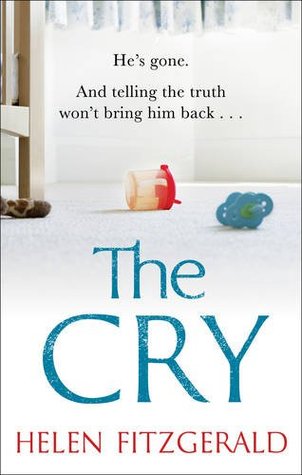
Title: Talking to the Dead
Author: Harry Bingham
Publisher: Hachette Book Group
Read: October 10 - 15, 2013
Synopsis (Amazon):For rookie detective constable Fiona Griffiths, her first major investigation promises to be a tough initiation into Cardiff's dark underbelly. A young woman and her six-year-old daughter have been found brutally murdered in a squalid flat, the single clue a platinum credit card belonging to a millionaire businessman who died in a plane crash six months before. For her fellow cops, it's just another case of a low-rent prostitute meeting the wrong kind of client and coming to a nasty end, but Fiona is convinced that the tragic lives and cruel deaths of this mother and daughter are part of a deeper, darker mystery. Fiona, however, has secrets of her own. She is still recovering from a crushing psychological breakdown, and the feelings which haunt her are constantly threatening to undermine the mask of normality she has learned to wear. As she begins to piece together a bizarre and terrifying conspiracy, Fiona finds that what makes her vulnerable also gives her a unique insight into the secrets of the dead, and in solving the murders of Janet and April Mancini she can begin to start solving the riddles of her own past.
My thoughts:
When I saw Harry Bingham’s novel Talking to the Dead being
compared to the writing of Stieg Larsson and Tana French, two of my favourite
crime writers, it made me instantly curious but it also meant that the story
had a lot to live up to. And it did! Introducing an interesting new
protagonist, troubled Detective Constable Fiona Griffiths, Talking to the Dead
opened the door to a gripping new series of police procedurals set in Wales,
one which is sure to attract a wide audience of readers who enjoy a solid police
procedural with a main character who is slightly different from your mainstream
heroine.
Detective Constable Fiona Griffiths, a Cambridge graduate
and relatively new recruit in the Wales police department, is investigating a
case of police corruption when she is drawn into the investigation into the
brutal murder of a prostitute and her six-year-old daughter in a squalid
Cardiff flat on the wrong side of town. A credit card belonging to a
millionaire recently killed in a plane crash is one of the only clues found on
the scene. Fiona, who is still battling the effects of a mental illness which
stole two years of her life as a teenager, is finding herself drawn to the
murder victims, determined to bring their killer to justice. When her
investigations into the owner of the credit card throw up strange connections
to her other case, she finds herself stirring a hornets nest of corruption,
unwittingly putting herself in the path of people who will do anything to keep
their assets protected.
Fiona is an interesting protagonist with a fresh engaging
voice and I found myself instantly drawn into the story and the mystery
surrounding her own secrets, which are gradually revealed as the plot unravels.
In his blog Sharing a Head with Fiona Griffiths, author Harry Bingham says that he wanted Talking to the Dead to
revolve as much around the mystery of Fiona’s character as it does around the
crime she’s investigating – and he has certainly achieved that. Without the
graphic or action packed scenes of other contemporary murder-mysteries, it is
Fiona who carries the storyline, her unpredictable and definitely somewhat odd
character keeping the reader enthralled.
Fiona’s battle with her mental illness is well portrayed,
especially her feelings of depersonalisation and isolation as well as her
impulsiveness and at times lack of common sense and forethought. This is very
clever, as it allows for her actions to be very un-police like at times,
especially when she sets off alone in pursuit of dangerous criminals and gets
herself in all sorts of sticky situations. Throughout her journey of
self-discovery, hastened by the emotions this case brings out in her, Fiona is
being brutally honest about her feelings, which I not only found touching and
endearing but which also got me into her head very quickly. There is a little
bit of Fiona in most of us at times, the feelings of inadequacy, of not fitting
in, of not quite fitting the mould, which enabled me to relate to her quite
well. With her troubled past and sometimes unorthodox methods, Fi follows in
the line of other plucky but troubled crime novel heroines such as S. J.
Bolton’s Lacey Flint (one of my favourites) or Larsson’s Lisbeth Salander.
I did find Fiona’s tendency to go out on her own and take
matters into her own hands a bit far fetched at times (especially towards the
end of the novel), but not to the point where it was totally unbelievable – and
let’s face it, if it weren’t for her adventures the standard police
investigation would make for a rather boring read. There is one scene in the
morgue which was slightly off-kilter and almost spoilt an otherwise solid plot
– but fortunately this was adequately explained later on in the book, which
mollified me somewhat. I also thought that the scenes in the lighthouse were a
bit rushed and would have benefited from a bit more depth and explanation –
after the long slowish lead-up, the final unravelling of the plot finally
brought the action I had been anticipating, but it was all over all too soon.
None of it however impaired my reading pleasure or my total absorption in the
book.
All in all I thoroughly enjoyed Talking to the Dead and was
thrilled to receive the next instalment in the series, Love Story with Murders, through Netgalley – which I am currently reading (and which is shaping
up to be just as good as the first one). Strongly recommended – this will be
one crime series to watch, and to provide many hours of entertainment yet to
come.


